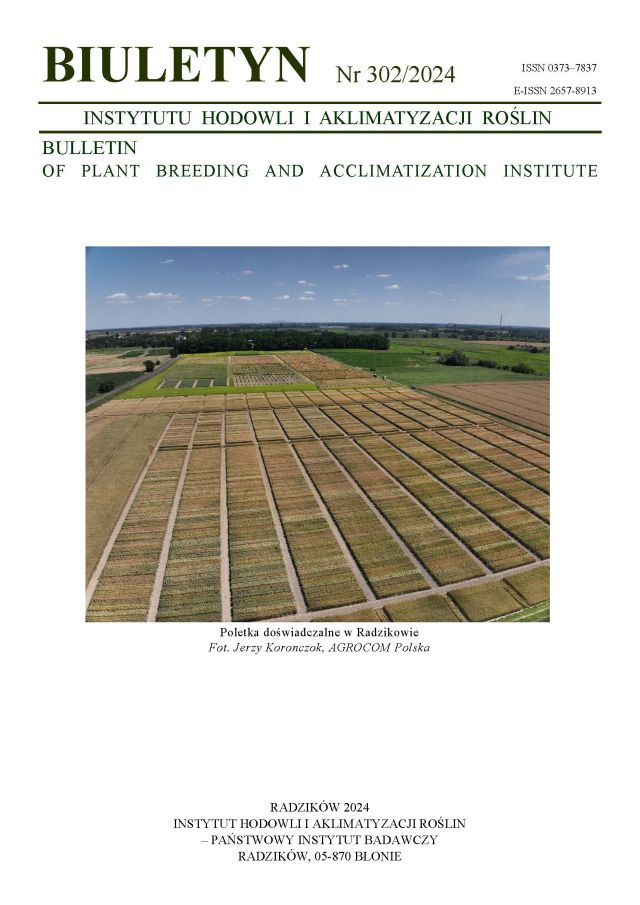Polskie rolnictwo w Unii Europejskiej i niektóre doświadczenia pierwszego roku członkostwa
Benon Gaziński
wns@uwm.edu.plWydział Nauk Społecznych i Sztuki, Uniwersytet Warmińsko-Mazurski w Olsztynie (Poland)
Abstrakt
Niniejszy artykuł stanowi retrospektywne spojrzenie na doświadczenia polskiej wsi i rolnictwa w okresie roku po przystąpieniu do Unii Europejskiej. W części wstępnej omówiono najważniejsze uwarunkowania rozwoju polskiego rolnictwa podczas dziesięcioleci gospodarki realnego socjalizmu. Rolnictwo polskie przetrwało naciski kolektywizacyjne, ale w okres transformacji rynkowej weszło technologicznie zacofane, o rozdrobnionej strukturze agrarnej oraz krępowane przez otoczenie ekonomiczne państwowego monopolu skupu i zaopatrzenia w środki produkcji i brak możliwości samoorganizowania się lokalnych społeczności. Transformacja systemowa, rozpoczęta w roku 1989, postawiła przed rolnictwem wiele wyzwań, łączących się z szybkim przejściem od „gospodarki niedoborów” do warunków gospodarki rynkowej. Kolejnym elementem zmieniającego się kontekstu politycznego i ekonomicznego, określającym przyszłość, stała się integracja europejska. W następnych częściach pracy syntetycznie przedstawiono drogę Polski do członkostwa w Unii Europejskiej oraz najważniejsze postanowienia dotyczące wsi i rolnictwa, uzgodnione w negocjacjach akcesyjnych. W części końcowej zarysowano doświadczenia pierwszego roku członkostwa. Zwrócono uwagę, że większość z obaw, tak rozpowszechnionych przed akcesją w środowisku wiejskim, się nie potwierdziła. W pierwszym roku członkostwa bardzo korzystne wyniki odniósł handel rolny — dynamicznie wzrosły obroty i powiększyło się, odnotowane już w roku poprzedzającym przystąpienie, dodatnie saldo wymiany. Nowe możliwości rozwoju wsi i rolnictwa dają znaczące środki finansowe ze wspólnotowego budżetu — objęcie naszego kraju zasadami wspólnej polityki rolnej i polityki strukturalnej. W nadchodzącym okresie budżetowym 2007–2013 nie będzie zasadniczych zmian dotychczasowych polityk wspólnotowych. W dalszej perspektywie jednak należy liczyć się z możliwościami wprowadzenia daleko idących nowych rozwiązań.
Słowa kluczowe:
Polska, rolnictwo, Unia Europejska, wieśBibliografia
Drago F, Gaziński B. 1998. Agenda 2000. W kręgu opinii Komisji Europejskiej o przyszłym rozszerzeniu Wspólnoty, Humanistyka i Przyrodoznawstwo, 4: 159 — 164.
Google Scholar
Doliwa-Klepacki Z. 2003. Unia Europejska — Polska. Od członkostwa stowarzyszonego do zwyczajnego (listopad 1989 r. marzec 2003 r.), WSBiP Ostrowiec Świętokrzyski.
Google Scholar
Gaziński B. 2002. Unia Europejska nie tylko dla początkujących, LITTERA Olsztyn.
Google Scholar
Godlewski A., Szoszkiewicz A. 2005. Pieniądze za darmo, czyli jak zdobyć unijne dotacje dla Twojej firmy, Wyd. Rectus Komorów.
Google Scholar
Ignatowicz J. 2004. Rozdział negocjacyjny „rolnictwo”. W: Polska w Unii Europejskiej. K. Żukrowska, J. Stryjek (red.), SGGW, Warszawa: 205 — 213.
Google Scholar
Kaliszuk E. 2005. Analiza konsekwencji członkostwa dla wymiany handlowej, w: Polska w Unii Europejskiej. Doświadczenia pierwszego roku członkostwa, UKIE Warszawa.
Google Scholar
Łastawski K. 2003. Od idei do integracji europejskiej. WSP TWP Warszawa.
Google Scholar
Polska wieś po wejściu do Unii Europejskiej. 2004. (red. J. Wilkin) FDPA Warszawa.
Google Scholar
Polskie rolnictwo w Unii Europejskiej (wyniki negocjacji) raport. 2003. Rolnik Dzierżawca. Miesięcznik Ogólnopolski.
Google Scholar
Seremak-Bulge J. 2005. Kondycja polskiego mleczarstwa w rok po akcesji, Zagadnienia Doradztwa Rolniczego 4: 53 — 68.
Google Scholar
Stan polskiej gospodarki żywnościowej po przystąpieniu do Unii Europejskiej. Raport 1. 2005. IERiGŻ, Warszawa.
Google Scholar
Urban R. 2005. Polski przemysł spożywczy w Unii Europejskiej — konkurencyjność i szanse rozwojowe, Zagadnienia Ekonomiki Rolnej 3: 14 — 23.
Google Scholar
Wsparcie gospodarstw rolnych po akcesji do UE. 2005. Minister Rolnictwa i Rozwoju Wsi, Warszawa, kwiecień, 2005.
Google Scholar
Autorzy
Benon Gazińskiwns@uwm.edu.pl
Wydział Nauk Społecznych i Sztuki, Uniwersytet Warmińsko-Mazurski w Olsztynie Poland
Statystyki
Abstract views: 47PDF downloads: 34
Licencja
Prawa autorskie (c) 2006 Benon Gaziński

Utwór dostępny jest na licencji Creative Commons Uznanie autorstwa – Na tych samych warunkach 4.0 Miedzynarodowe.
Z chwilą przekazania artykułu, Autorzy udzielają Wydawcy niewyłącznej i nieodpłatnej licencji na korzystanie z artykułu przez czas nieokreślony na terytorium całego świata na następujących polach eksploatacji:
- Wytwarzanie i zwielokrotnianie określoną techniką egzemplarzy artykułu, w tym techniką drukarską oraz techniką cyfrową.
- Wprowadzanie do obrotu, użyczenie lub najem oryginału albo egzemplarzy artykułu.
- Publiczne wykonanie, wystawienie, wyświetlenie, odtworzenie oraz nadawanie i reemitowanie, a także publiczne udostępnianie artykułu w taki sposób, aby każdy mógł mieć do niego dostęp w miejscu i w czasie przez siebie wybranym.
- Włączenie artykułu w skład utworu zbiorowego.
- Wprowadzanie artykułu w postaci elektronicznej na platformy elektroniczne lub inne wprowadzanie artykułu w postaci elektronicznej do Internetu, lub innej sieci.
- Rozpowszechnianie artykułu w postaci elektronicznej w internecie lub innej sieci, w pracy zbiorowej jak również samodzielnie.
- Udostępnianie artykułu w wersji elektronicznej w taki sposób, by każdy mógł mieć do niego dostęp w miejscu i czasie przez siebie wybranym, w szczególności za pośrednictwem Internetu.
Autorzy poprzez przesłanie wniosku o publikację:
- Wyrażają zgodę na publikację artykułu w czasopiśmie,
- Wyrażają zgodę na nadanie publikacji DOI (Digital Object Identifier),
- Zobowiązują się do przestrzegania kodeksu etycznego wydawnictwa zgodnego z wytycznymi Komitetu do spraw Etyki Publikacyjnej COPE (ang. Committee on Publication Ethics), (http://ihar.edu.pl/biblioteka_i_wydawnictwa.php),
- Wyrażają zgodę na udostępniane artykułu w formie elektronicznej na mocy licencji CC BY-SA 4.0, w otwartym dostępie (open access),
- Wyrażają zgodę na wysyłanie metadanych artykułu do komercyjnych i niekomercyjnych baz danych indeksujących czasopisma.














